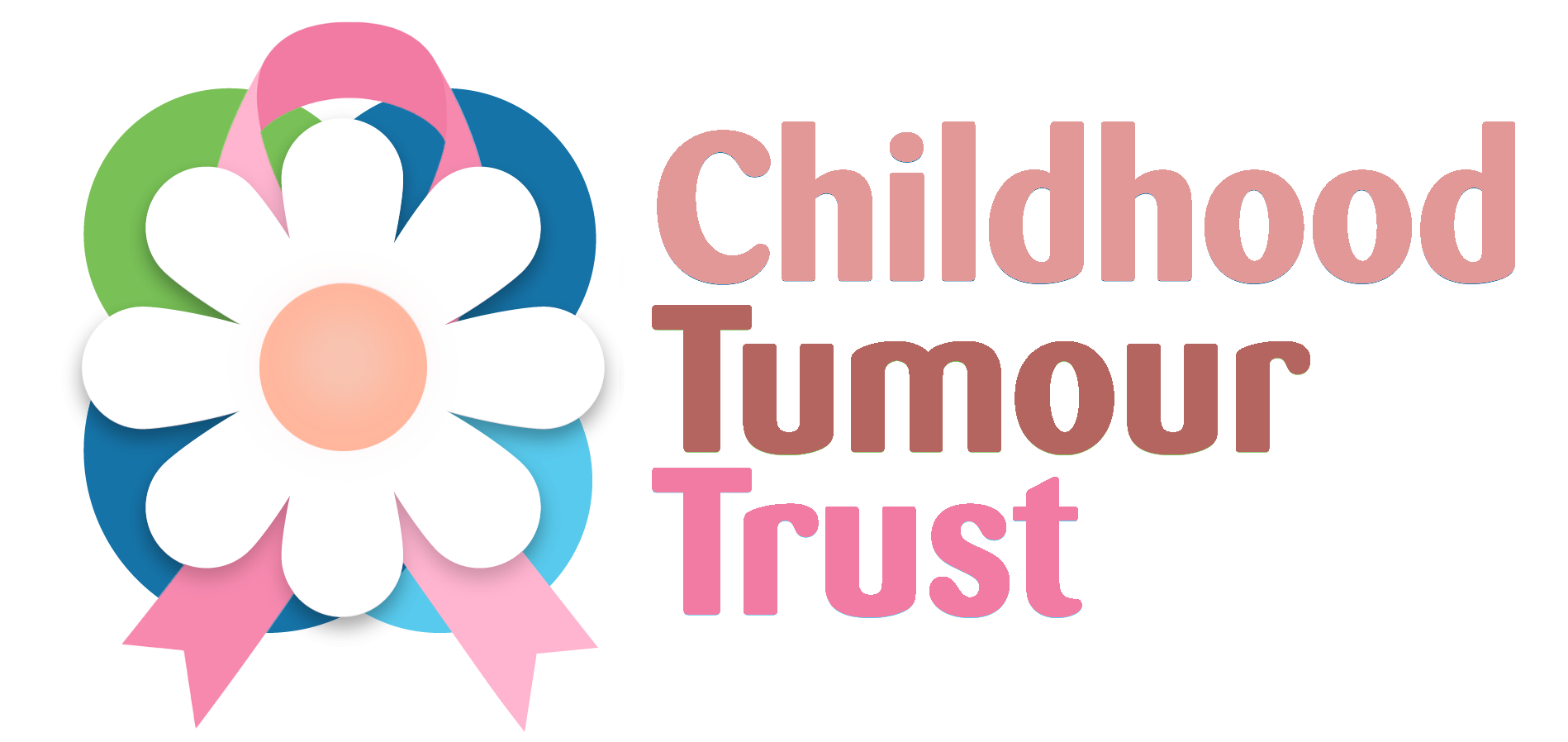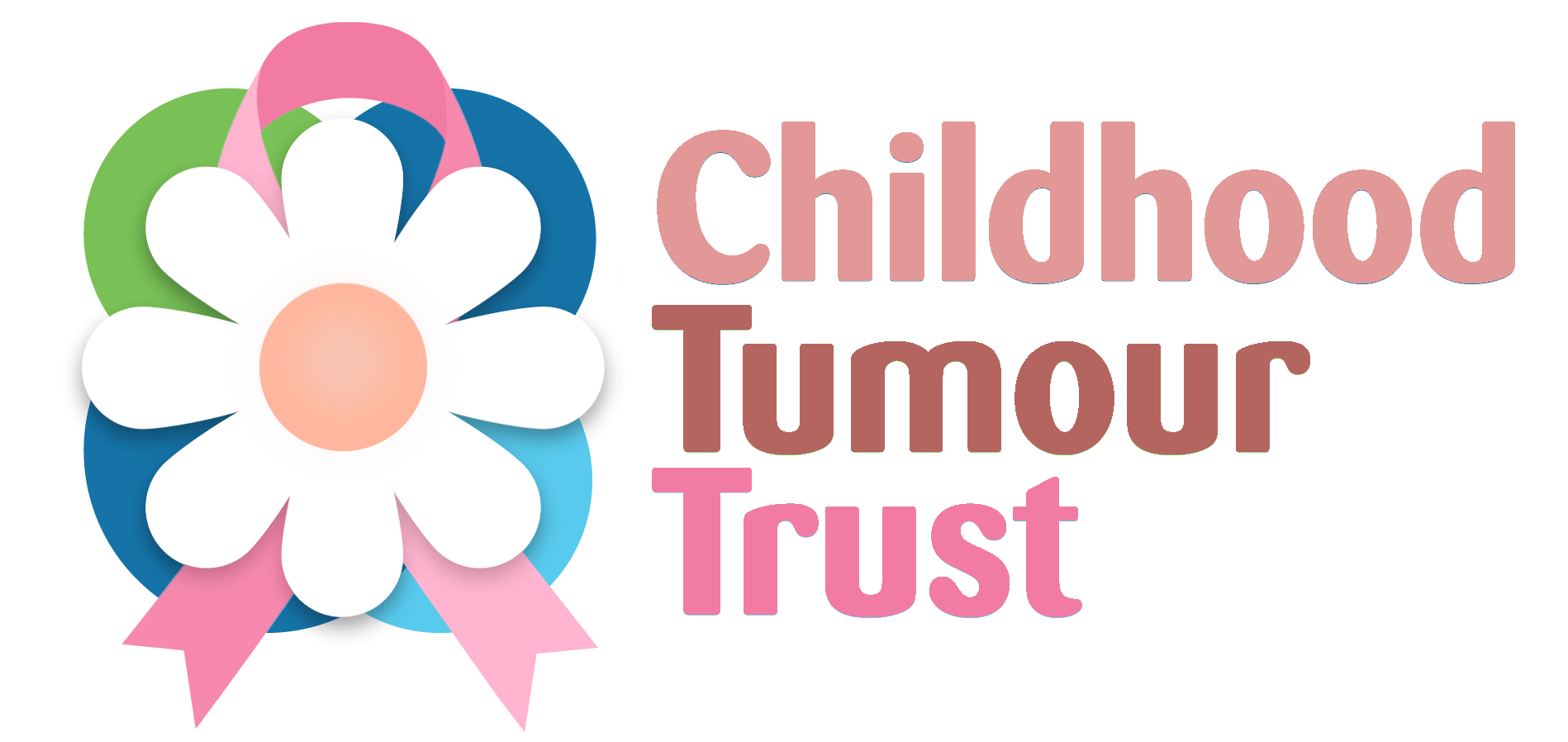This isn’t just me being vain. This could cost me my life
Having lived with a rare condition her whole life Jodie Hodgson is no stranger to experiencing a lack of awareness from medical professionals about her disease. Her fight to be taken seriously has led her to become the expert in her condition so she can feel empowered to pushback when her concerns are downplayed. However, she acknowledges that it shouldn’t feel like a fight which is why she advocates for better understanding about her condition and the increased risk of breast cancer, particularly among young women
Jodie Hodgson was just six months old when she was diagnosed with neurofibromatosis (NF1). Born with a café au lait mark on her stomach, a hallmark of the condition, doctors assured her parents it was just a birthmark which would go with time. Jodie’s dad had NF1 but, until Jodie was diagnosed, he was completely unaware. Despite having hundreds of neurofibromas he had always been told it was because his mum hadn’t got enough vitamins when she was pregnant. However, it was upon seeing his skin that led doctors to diagnose Jodie.
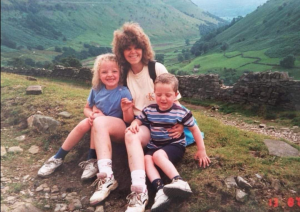
When Jodie was diagnosed, her parents received very little information. They were given a leaflet which Jodie notes was quite alarmist, focussing on possible visual differences someone with NF1 may experience, that left her growing up with a worrying picture of what her life would be like in the future. “In my head I thought I was going to turn into a goblin!”
Growing up with NF1, Jodie says she saw a genetic specialist once a year but didn’t really understand what NF1 was. “I went to the appointment, they’d look in my eyes, check my spine and say, ‘you’re fine’. I didn’t really have an understanding of it, it was just something I had to do and it was a day off school.” Jodie notes that medical professionals would mainly focus on the effect NF1 has on the skin, saying “‘you might get a bit lumpy, but you’ll be fine’, and nothing else was really explained.”
As Jodie got older, and gained access to the internet, she began researching the condition. “As a teenager that was terrifying, because you’d see people with very severe cases and read that people had died because of it.” While Jodie has a fairly mild form of NF1, she feels her condition is very much downplayed by medical professionals. “I still have NF1 and I should be treated with the same understanding and respect as someone with a severe case.”
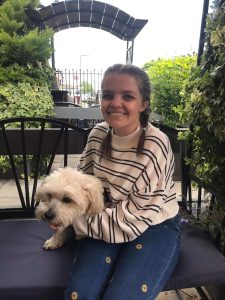
When Jodie was 26 she had two neurofibromas in her right breast. (Neurofibromas are a manifestation of NF1 and are benign tumours on or just under the skin). They were larger than previous neurofibromas she’d had and were painful and itchy. She asked for them to be removed but received some pushback from her GP. She was told she was being vain, and it was cosmetic surgery which they didn’t have the budget for. “I explained that I’m really uncomfortable, it hurts, it’s affecting my sex life and it’s affecting me even putting clothes on in the morning. But I was told ‘it’s just a plastic surgery’. It’s always felt as if it’s downplayed.”
Jodie lost her dad in 2019 due to complications with NF1 which she says made her realise how serious it is. “It isn’t just something to do with your skin. This isn’t just me being vain and not liking lumps. This could cost me my life.” Jodie put a complaint in with her GP surgery and contacted the charity Nerve Tumours UK, who along with her specialist, fought for her to have the lumps removed. “It shouldn’t have to be a fight. When you go to your doctor with a condition like this you shouldn’t be told you’re just being vain.”
Knowledge is power
In her late teens Jodie’s research progressed to reading medical literature, dissertations and PhD research papers. This is where she first discovered her increased risk of developing breast cancer, and while it was obviously a concern, for Jodie knowledge is power and having the facts and statistics helped her feel more empowered. “Reading a medical study gave me actual figures and that was a big reassurance for me, as although there’s an increased risk, it’s not 100% guaranteed that I would turn 30 or 40 and get breast cancer. That’s the sort of information you need because even specialists say you might have an increased risk, but what does that mean?” Jodie acknowledges that while this helped her not everyone has the means to carry out such detailed research, and so they rely on uncertain, often unreliable, data which can be anxiety inducing.
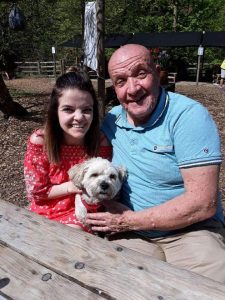
Just before Jodie turned 30, she discovered a lump in her right breast. Because she is aware of her increased risk, Jodie regularly checks her breasts for lumps and changes and knew this felt different. The lump was solid, hot and painful, with a rash, and so she contacted her GP straightaway. She encountered some initial reluctance from the doctor’s receptionist who said she needed to wait a few more weeks to see if the lump changed or went away before she could get an appointment. Not content with waiting Jodie felt that she needed to be seen sooner. “I explained my increased risk and that other family members had had breast cancer, and whilst it wasn’t hereditary, I felt the cards were stacked against me in this situation.” Jodie got an appointment and recalls her GP was extremely helpful. “My GP had researched NF1 prior to the appointment and knew the actual percentage increase of it being breast cancer.” While her GP assured her it was probably nothing to be concerned about, she fast tracked an appointment for Jodie and she got the results in two weeks.
Fortunately, an ultrasound scan showed that the lump was benign and in time it went away by itself. With Jodie’s increased risk and red flag symptoms, she was glad she pushed to be seen straightaway. “While it felt like the longest two weeks of my life, it would have been so much worse to wait and keep checking and then be seen after a few weeks, especially knowing it could be something more sinister. You just need to deal with it.”
Jodie says it can be difficult dealing with a condition that many GPs have little or no experience of. She has had varying experiences over the years, from consulting with doctors who are very knowledgeable about NF1, to those who ask Jodie to explain the condition to them.
Jodie is empowered because of the research she has done and feels this puts her on more of a level playing field. However, she can still experience a feeling of dread when going to her GP, in case her concerns are dismissed. “I still feel like many GPs don’t think it affects your life that much. It almost feels like you’re wasting their time or you’re wasting resources when you push for screening.” She also says that because she is young and female, she often feels like she is talked down to. “It can feel like you are put in a submissive place of they’re the professional, I’m just a girl.”
Jodie believes the main thing that deters women with NF1 from requesting early screening is fear and worry that they will be made to feel small and that they are overthinking it because the GP perceives the risk as low. “There is a fear of advocating for yourself and a dread of having that pushback, having to go away and come back and have the same conversation all over again.”
Jodie feels there needs to be increased awareness and understanding of the risks of breast cancer and what to check for, not just for those with NF1, but for all women, especially those who are younger who may not have even thought about checking their breasts. “There should be more understanding that this isn’t an old woman’s disease. That doesn’t mean scare mongering but just having an understanding that this is something you should be aware of, it should be on your radar.”
